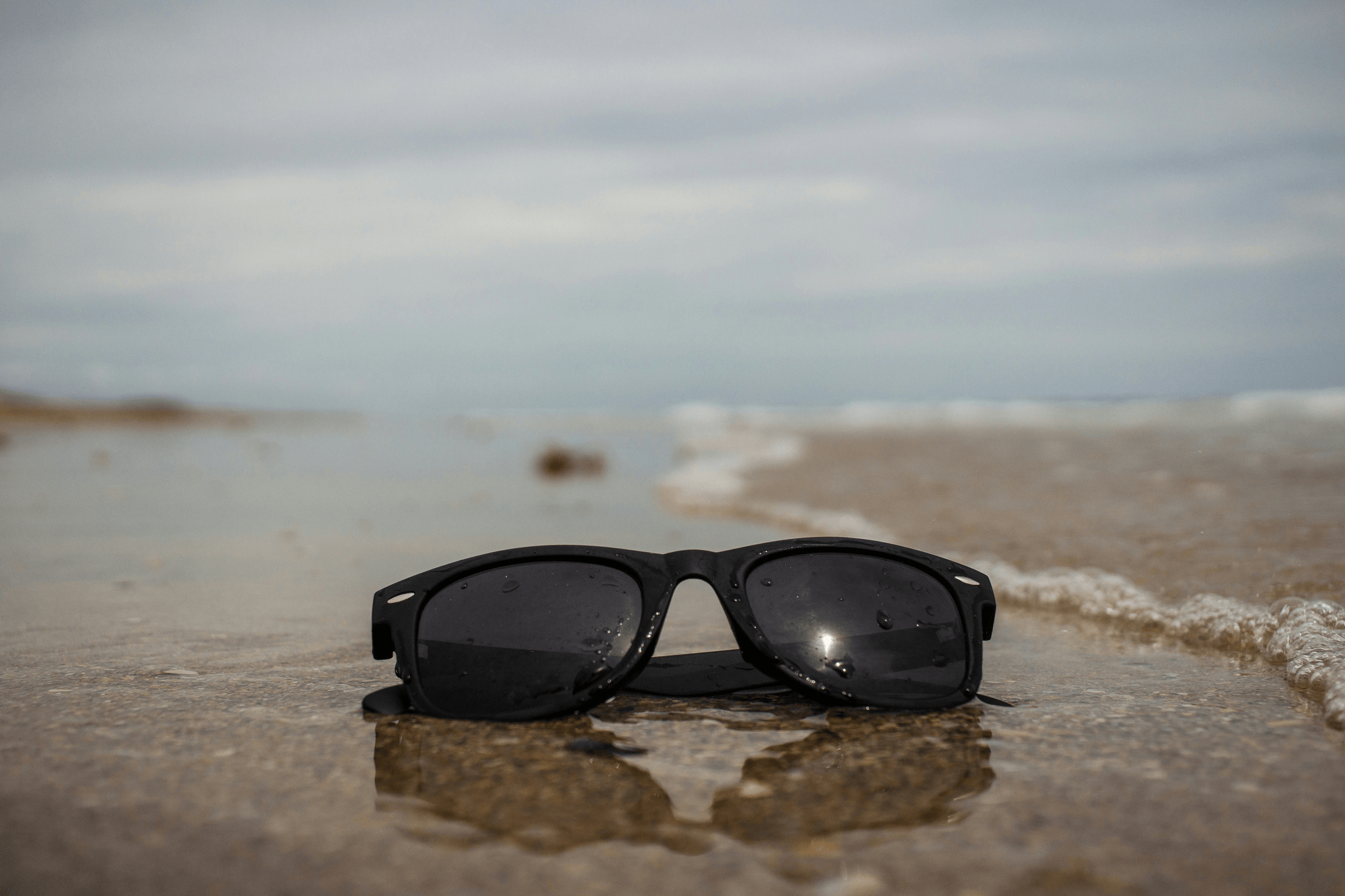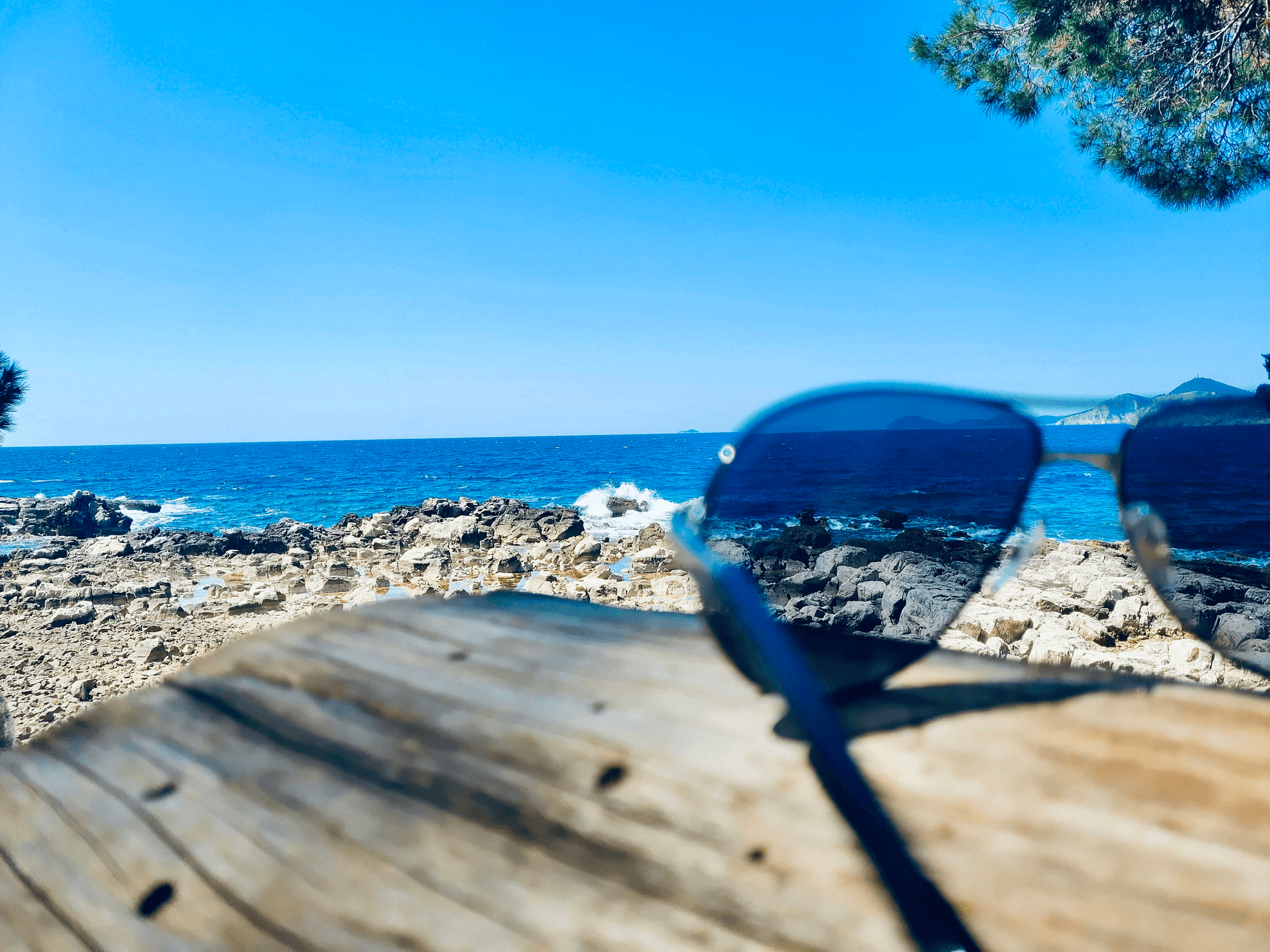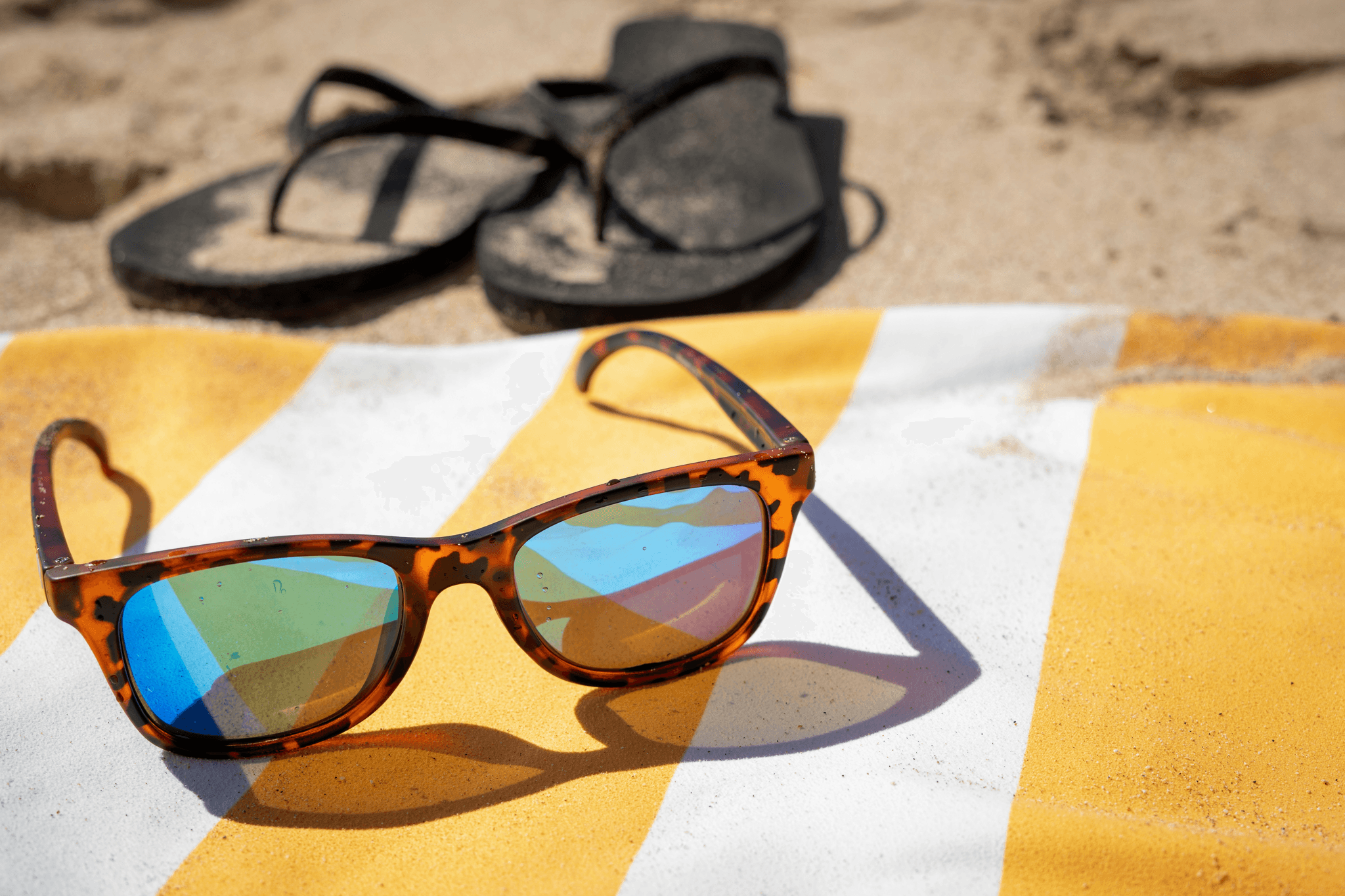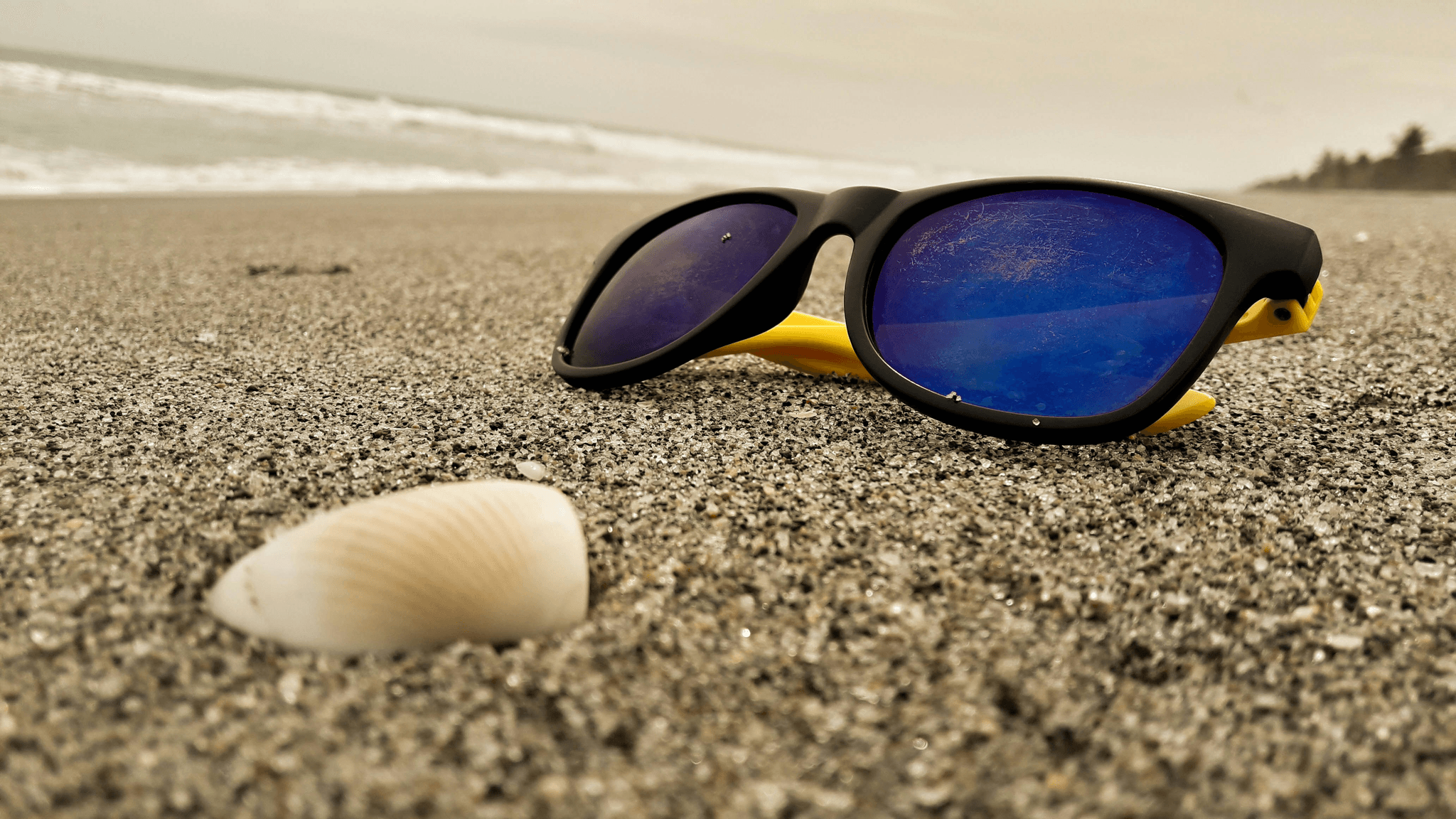Introduction
Polarized sunglasses are designed with a special filter that blocks intense reflected light, which is often responsible for glare. This glare can be particularly problematic when you're driving, fishing, or enjoying a day at the beach. By understanding the science behind polarized lenses, you can appreciate why they are often recommended for those seeking clarity and comfort in bright conditions.
Advantages Beyond the Ordinary
Is it better to get polarized sunglasses? Absolutely! Not only do they reduce glare and improve visibility, but they also enhance color clarity and contrast—making everything from vibrant landscapes to subtle details pop beautifully. In addition to these visual perks, wearing polarized lenses can significantly reduce eye strain during activities like skiing or cycling where glare is prevalent.
Understanding Polarized Sunglasses Meaning
To fully grasp the advantages of these shades, it's essential to understand what polarized sunglasses means. Essentially, they refer to eyewear that has been treated with a special coating designed to filter out horizontal light waves while allowing vertical waves through. This technology not only improves your vision but also contributes positively to overall eye health by minimizing harmful UV exposure.
What Do Polarized Sunglasses Do?

Polarized sunglasses are not just a trendy accessory; they serve significant functional purposes that enhance your visual experience. So, what do polarized sunglasses do? They utilize a special filter to block out intense light glare, which can be especially helpful when you're outdoors, driving, or engaging in water sports. This means clearer vision and less squinting—definitely a win-win for your eyes!
Blocking Glare for Clear Vision
One of the primary functions of polarized sunglasses is their ability to block glare from reflective surfaces like water, snow, and roads. When light reflects off these surfaces, it can create blinding glare that obscures your vision and makes it difficult to see clearly. By reducing this glare effectively, polarized lenses provide you with clearer vision and make activities like fishing or skiing much more enjoyable—so you might be wondering: is it better to get polarized sunglasses? The answer is often yes if you find yourself in environments where glare is an issue.
Enhancing Contrast and Color Clarity
Another remarkable feature of polarized sunglasses is their capability to enhance contrast and color clarity. These lenses help differentiate between colors more vividly by filtering out scattered light waves that can dull your perception of hues. This enhancement not only makes the world look more vibrant but also improves depth perception—a crucial benefit whether you’re hiking through nature or navigating city streets. Thus, when considering which sunglasses are best for outdoor activities, polarized options often take the lead.
Reducing Eye Strain During Activities
Wearing polarized sunglasses can significantly reduce eye strain during prolonged outdoor activities by minimizing the harshness of bright light exposure. When you're squinting due to excessive brightness or glare, your eyes work overtime—leading to discomfort and fatigue over time. With reduced eye strain from wearing these specialized lenses, you can enjoy longer hours outside without feeling fatigued or uncomfortable—making you ponder if it's okay to wear polarized sunglasses all the time.
Is It Better to Get Polarized Sunglasses?

When considering the benefits of polarized sunglasses, many people wonder, Is it better to get polarized sunglasses? The answer largely depends on your lifestyle and how you use sunglasses. Polarized sunglasses are designed to reduce glare from reflective surfaces, making them a popular choice for outdoor activities, but they’re not the only option available.
Comparing Polarized vs. Non-Polarized
To truly understand the difference between polarized and non-polarized options, it's essential to know what do polarized sunglasses do. Polarized lenses have a special filter that blocks intense light reflected off surfaces like water or roads, enhancing visibility and comfort. On the other hand, non-polarized lenses can sometimes allow glare to interfere with your vision, especially in bright environments.
While both types of sunglasses provide UV protection—an important factor for eye health—the choice between them often comes down to specific needs. For instance, if you're an avid fisherman or spend a lot of time by the water, polarized lenses can be invaluable for spotting fish beneath the surface. However, if you primarily wear sunglasses for casual outings or driving in lower light conditions, non-polarized options may suffice.
Real-World Scenarios for Polarized Use
In real-world scenarios, understanding when it's appropriate to use polarized sunglasses can clarify why some individuals swear by them while others prefer alternatives. Activities like skiing or snowboarding benefit greatly from polarization due to its ability to cut through glare on snowy slopes—perfect for those who want clear vision while carving their way down mountains! Similarly, boaters and beachgoers will find that polarized lenses help reduce reflections off water surfaces.
However, there are situations where wearing polarized sunglasses might not be ideal. For example, pilots often choose non-polarized glasses since they need clear visibility of their instruments without interference from lens polarization effects—this answers the question: Why do pilots wear non-polarized sunglasses? Understanding these distinctions helps consumers make informed choices about which sunglasses are best suited for their activities.
Cost Considerations and Quality
When deciding whether to invest in polarized eyewear versus standard options, cost considerations play a significant role in many people's decisions. Generally speaking, high-quality polarized lenses tend to come at a premium price due to their advanced technology and manufacturing processes; however, this investment can pay off in terms of enhanced comfort and reduced eye strain during extended outdoor activities.
It's also crucial not just to look at price but also at quality when choosing between different brands—this is where Daposi shines! Their commitment goes beyond eyewear; they focus on bringing your vision to life with tailored solutions that fit your unique style needs while ensuring top-quality results through innovative production techniques. So whether you're asking yourself Which sunglasses are best? or pondering Is it okay to wear polarized sunglasses all the time?, Daposi offers fantastic options that blend functionality with style!
Which Sunglasses Are Best: UV or Polarized?

Understanding UV Protection
UV protection is essential in any pair of sunglasses since harmful ultraviolet rays can lead to various eye issues like cataracts and macular degeneration. Sunglasses that offer 100% UV protection shield your eyes from both UVA and UVB rays, effectively reducing long-term damage. While polarized sunglasses meaning often focuses on glare reduction, they should also provide adequate UV protection to ensure comprehensive eye safety.
The Role of Polarization in Eye Health
So what do polarized sunglasses do beyond just looking stylish? They primarily filter out horizontal light waves that create glare, enhancing visual clarity and comfort during outdoor activities. However, it's important to note that while polarization significantly improves visibility in bright conditions, it does not replace the necessity for UV protection; both features work together for optimal eye health.
Choosing the Right Sunglasses for You
When deciding whether Is it better to get polarized sunglasses? consider your typical environments—if you spend a lot of time near water or driving, polarized lenses are a great choice. Yet remember that not all situations require polarization; for instance, pilots often opt for non-polarized sunglasses due to instrument readability concerns (yes, they know why!). Ultimately, selecting the right pair hinges on understanding your own needs—whether prioritizing glare reduction or ensuring complete UV coverage will elevate your experience outdoors.
Why Do Pilots Wear Non-Polarized Sunglasses?

The Importance of Seeing Through Glare
For pilots, being able to see through glare is crucial for maintaining situational awareness. While polarized sunglasses are excellent at reducing glare on land or water, they can sometimes obscure vital visual cues in the cockpit. This becomes particularly important when considering what do polarized sunglasses do; they may enhance clarity outside but could hinder visibility of critical instruments inside an aircraft.
Balancing Polarization and Instrument Readability
When flying, instruments provide essential data that must be read accurately at all times. Polarized lenses can sometimes interfere with the visibility of these displays, making it challenging for pilots to gauge flight information accurately. This balance between polarization benefits and instrument readability raises the question: Is it better to get polarized sunglasses? For aviators, the answer leans towards non-polarized options to ensure they have a clear line of sight both inside and outside the cockpit.
Insights from Aviators on Sunglass Choices
Aviators often share their experiences regarding sunglass choices, emphasizing practicality over fashion trends. Many agree that while polarized lenses excel in outdoor activities—like fishing or driving—they might not be suitable for every situation, particularly in aviation contexts where precision is paramount. Their insights also highlight a common query: which sunglasses are best? For those who fly frequently, non-polarized options provide a reliable solution without compromising safety.
Is It Okay to Wear Polarized Sunglasses All the Time?

Polarized sunglasses have become a staple accessory for many, but the question remains: Is it okay to wear polarized sunglasses all the time? Understanding what do polarized sunglasses do can help clarify their role in your daily life. While they offer numerous benefits, it's essential to consider when and how often to don these stylish shades.
Everyday Situations for Polarized Sunglasses
In everyday situations, wearing polarized sunglasses can significantly enhance your visual experience. Whether you're driving, enjoying a day at the beach, or hiking in bright sunlight, these glasses effectively block glare and improve clarity. With their ability to reduce eye strain during activities, it's no wonder that many people wonder if it is better to get polarized sunglasses for daily use.
From outdoor sports enthusiasts to casual walkers, everyone can benefit from the advantages of polarized lenses. They not only enhance contrast and color clarity but also provide protection against harmful UV rays—making them a smart choice for anyone looking for which sunglasses are best during outdoor adventures. So go ahead and wear those stylish shades as you navigate through your day; just remember that moderation is key!
Potential Drawbacks of Constant Use
While wearing polarized sunglasses has its perks, there are potential drawbacks to consider when thinking about constant use. One concern is that polarization can sometimes interfere with the visibility of LCD screens on devices like smartphones or car dashboards. This could lead you to ask yourself why do pilots wear non-polarized sunglasses? In their case, this choice helps ensure they can easily read instruments without any distortion.
Additionally, some people may find that wearing polarized lenses all day leads to discomfort in low-light conditions or indoors where glare isn't an issue. It's essential to strike a balance between protecting your eyes from bright sunlight while allowing them some relief from constant polarization exposure.
Expert Opinions on Usage Frequency
Experts generally agree that while polarized sunglasses offer exceptional benefits outdoors, they shouldn't be worn all day without consideration for context. Many recommend switching between polarized and non-polarized options depending on your environment—especially if you're frequently moving between bright sunlight and indoor settings where glare isn't a concern. Ultimately, understanding which sunglasses are best suited for different scenarios will help you make informed choices about whether it is okay to wear polarized sunglasses all the time.
In conclusion, while polarizing lenses provide excellent protection and clarity in various situations—especially outdoors—it's wise not to rely solely on them at all times. By being mindful of when and how often you wear these stylish accessories, you'll be able to enjoy their advantages without experiencing any drawbacks.
Conclusion

In a world where outdoor activities and sunny days beckon, understanding the ins and outs of polarized sunglasses is essential. We’ve explored how these glasses not only shield your eyes but also enhance your visual experience by blocking glare, improving contrast, and reducing eye strain. So, what do polarized sunglasses do? They elevate your vision to new heights while adding a touch of style to your ensemble.
Discovering the Hidden Advantages
When considering whether it’s better to get polarized sunglasses, it’s crucial to recognize their multifaceted benefits. Beyond just reducing glare from surfaces like water or roads, polarized lenses can enhance color clarity and contrast—qualities that are invaluable for outdoor enthusiasts or anyone who spends time in bright environments. Moreover, understanding the polarized sunglasses meaning can help you appreciate their role in safeguarding your eye health while making everyday activities more enjoyable.
Making an Informed Sunglasses Choice
Choosing the right pair of sunglasses involves more than just picking a trendy frame; it requires weighing factors such as UV protection versus polarization. While both features are important for eye safety, knowing which sunglasses are best for your lifestyle can lead to better decisions. For instance, if you're often outdoors or engaging in water sports, investing in polarized lenses might be the way to go—after all, who wouldn’t want clearer views during those sun-soaked adventures?
Elevate Your Style with Daposi Sunglasses
At Daposi, we believe that eyewear should reflect individuality while providing top-notch functionality. Our commitment extends beyond simply offering stylish frames; we aim to bring your vision to life with innovative designs that cater to every taste and need. Whether you’re curious about why pilots wear non-polarized sunglasses or pondering if it’s okay to wear polarized sunglasses all the time, our collection has something for everyone—ensuring you look fabulous while enjoying superior eye protection!
